By Kristy Ishii, JACL Japan Chapter President
As I looked out from the fourth-floor entrance of Narita International Airport’s departure curbside area on June 1, memories of Japan flooded into my mind.
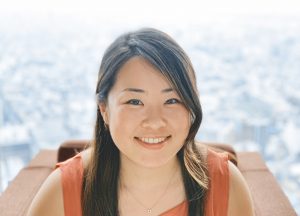
Kristy Ishii
I arrived at NIA with a couple hundred fellow JET English teachers from Los Angeles four years ago in the summer of 2016 with wild eyes, huge ambitions and naive expectations. Thinking back on all the cultural mishaps, language blunders and obstacles that I encountered over the years — and overcoming those hardships — I know I was able to experience more than I ever could have imagined.
Memories of the local ramen shop where I could eat a bowl of hand-pressed noodles and practice speaking Japanese with ojiisans at the bar area. My first league tournament with the men’s baseball city team in Tatebayashi (Gunma), with cherry blossom petals falling on the field during my first at bat. My trip to Kyuushu to meet my Bachan’s cousin for the first time and seeing the family koseki with my Bachan’s name on it. My family’s first trip abroad in Japan and dressing up in yukatas for our walk along Kyoto’s famous Kiyomizudera Temple. The list goes on and on …
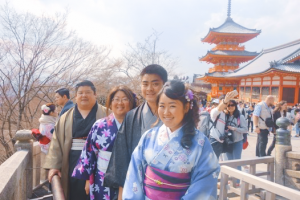
Kristy in March 2017 with her parents and younger brother, all dressed in yukatas, in Kyoto.
Four years later, I walked through that same airport with matured eyes and a much-deeper understanding of society in Japan. As I stood in front of the security line entrance, I became overwhelmed with gratitude and love as I thought about all the families, friends, host families and mentors who helped me throughout my time in Tokyo.
My first two years in Gunma were through the JET Programme English Teacher position. In 2018, I jumped into a new career in Tokyo as a career consultant while continuing to build a community in Tokyo, particularly within our international Nikkei community.
With only a couple straggling travelers making their way through the sliding doors to the check-in lobby, I stood on the empty sidewalk, holding my partner’s hand, and my mask began to fill with tears. I braced myself for the nonexistent security line, as the final minutes of my time in Japan became my reality.
The current COVID-19 pandemic has changed many lives across the world. It has heightened sensitivities of some and forced others to sort out priorities in life with a finer comb.
For me, the decision to repatriate to the U.S. was not easy or desirable under the circumstances. But, the catalyst that gave me the green light to go home as soon as possible was being laid-off by my company.
I loved my co-workers, boss and work as a career consultant and recruiter. However, with everything moving to digital platforms and events being canceled left and right, my job became very impersonal.
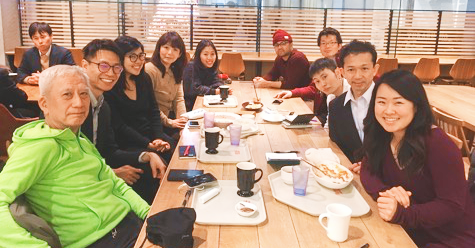
Kristy is president of the JACL Japan chapter, and this is a photo of participants during the monthly English Cultural Exchange session in Tokyo.
Outside of work, as the current president of the JACL Japan chapter, I felt so connected and grateful for the greater Tokyo community, and the board and I were gearing up for a really exciting 2020. However, given the COVID-19 restrictions, community events also came to a halt.
Tokyo became a place of festered anxiety and germs, especially in the city’s crowded trains during the commute to work. Although I was at low risk of getting sick, my mind kept thinking about my father, who is a dentist, and my uncle, who works at the grocery store, as well as my two remaining grandparents, plus all my other friends and family back in the U.S.
I look back now and feel that being let go by my company was a blessing in disguise. It allowed me to let go of a place that I felt so dearly attached. After various stages of shock and disappointment, I started to turn toward a bittersweet acceptance of the situation.
I left family and friends at age 22 and returned at age 26. I left the U.S. when Barack Obama was president and returned with Donald Trump in leadership. I left when cities were bustling, and NPO conferences and galas were in season, and returned to yellow tape and signs that instruct people on how to continue their lives cautiously and virus free. I left college with a naive heart, filled with dreams and aspirations, and returned with a jumbled up bilingual vocabulary (Japenglish) and emotional scars from leaving so abruptly. Overall, I am returning with a more realistic set of dreams and a much stronger sense of who I am as an individual. My journey in Japan has been incredibly life-changing.
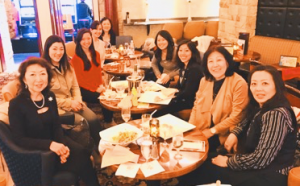
Kristy with members of the Nikkei Ladies Organization at the New Sanno Hotel in Hirō, Tokyo.
Looking back on all the memories and times spent with loved ones in Japan, I feel like I have a new home, family and support system overseas. If I go back to Japan, I am determined to believe that moving back a second time will be very different than the first. Knowing that I can potentially return at some point in the future, if the opportunity arises, gave me enough courage to repatriate as hastily as I did during the pandemic.
I have learned over time that it is really tough to swallow when an expat friend leaves Japan. Anyone who lives or has lived in Tokyo will understand what I mean. You don’t really just bounce back and forth between the U.S. and Japan easily.
VISAs are not handed out left and right, as there are language expectations paired with certain work opportunities. Typically, people host a soubetsukai, or a “see-you-later” party. And no matter how much you try to keep in touch, you lose contact until a big event happens, or they come back to visit Japan.
I wanted so badly to say that final “see you later” in person and thank each and every one of my friends face to face for all the lessons and memories shared. But the circumstances just did not allow it to happen. So, I sit here, numb with gratitude.
Because of the people, friendships and connections I made, in a way, I am at peace with leaving Japan. I have left so much of myself by leaving friends and second families that I feel the strong need to go back, eventually. But right now, something in my gut tells me that I need to be home with my family. The COVID situation, the layoff, the relocation from Tokyo all gave me the green light to reserve that one-way ticket back to California.
When will I come back? I don’t know. But I hope that my friends in Japan will remember all the fun times, the laughter, the tears and the memories we made so that we can pick up right where we left off. The end of a chapter is coming to a conclusion.
With tears of gratitude, I thank you for supporting me through this journey.
お世話になりました、また今度だよね!
❖❖❖
Tokyo in the Pandemic
The climate in Tokyo and the Kanto region right now is very different than that of my small town in Salinas, Calif. People in Tokyo have been commuting on trains and dining out after just one month of a recommendation to shelter in place, during the state of emergency.
There were no penalties for companies that did not allow work-from-home options or adjusted hours to avoid crowded trains. Without watching the news clips of international COVID-19 stories, it would be very feasible to go about your daily life without feeling like there was a global pandemic because everything is still running as per usual in Japan.
Granted, the social culture in Japan is much less touchy — no handshakes, no shoes in the house, no chatter on public transport, etc. Masks are also quite the common household item, as it is used for keeping moisture levels high enough during the dry winter seasons, as well as to block out odors and allergens while in the city centers.
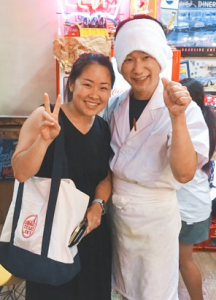 However, the Japanese government has not, and will not, take the testing approach, like the U.S. has done, thus the infection numbers are not quite as trustworthy for many locals in Japan.
However, the Japanese government has not, and will not, take the testing approach, like the U.S. has done, thus the infection numbers are not quite as trustworthy for many locals in Japan.
The Olympics are on the line for 2021, and some large Japanese corporations like Fujitsu are allowing certain employees to have permanent remote work options. Along with the changing of the hanko seal procedure (a 100-plus-year tradition of signing legal documents with a stamp) to being more digitally friendly, Japan will hopefully be able to capitalize on the current situation and pivot for a more sustainable work culture in the future.
For those of you who have faced difficult situations and decisions, especially during 2020, please know that you are not alone.
For anyone who is curious about life in Japan, from an Asian American perspective, I would be happy to share my thoughts and experiences with you.
I miss the Japanese food, my partner, friends and host families who live in Japan, and I would love to talk to anyone who is curious about what life is like in Japan during COVID-19.
Kristy Ishii has four years of experience working in Japan and has achieved N2 of the JLPT Language Certification Proficiency Test (business level advanced). She spends her time coaching young professionals to discover their fullest potential, researching job opportunities and baking Shokupan (Japanese milk bread) to keep some of the Japanese food tastes part of her daily routine.



